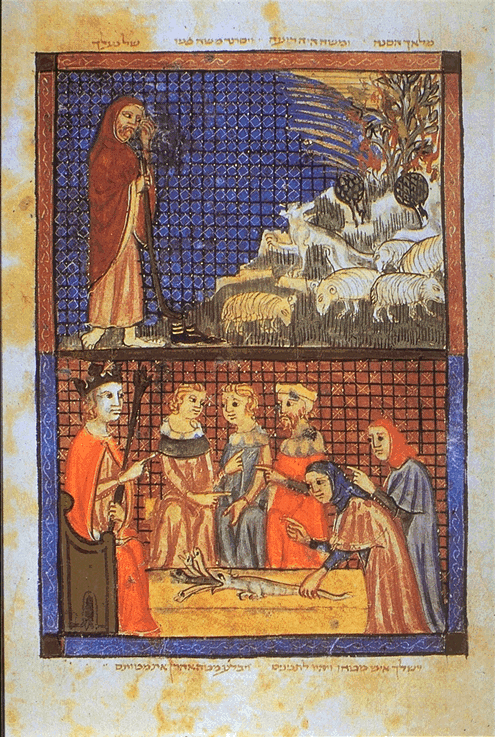 School was out and it was time for my customary summer bookstore expedition. After taking an unnecessarily long, albeit usual, amount of time browsing the shelves, I happened upon People of the Book by Geraldine Brooks. Based on the history of the Sarajevo Haggadah, People of the Book weaves together fictional characters through the centuries who played pivotal roles in preserving the Haggadah. This gateway novel opened my mind to the world of Geraldine Brooks’ literature, and I subsequently devoured March, Year of Wonders, and her newest novel, Caleb’s Crossing.
School was out and it was time for my customary summer bookstore expedition. After taking an unnecessarily long, albeit usual, amount of time browsing the shelves, I happened upon People of the Book by Geraldine Brooks. Based on the history of the Sarajevo Haggadah, People of the Book weaves together fictional characters through the centuries who played pivotal roles in preserving the Haggadah. This gateway novel opened my mind to the world of Geraldine Brooks’ literature, and I subsequently devoured March, Year of Wonders, and her newest novel, Caleb’s Crossing.
She writes: “I love to find stories from the past where we can know something, but not everything; where there is enough of a historical record to have left us with an intriguing factual scaffolding, but where there are also enough unknowable voids in that record to allow room for imagination to work.” Brooks’ comment perfectly depicts the framework of her works: taking the barebones of a historical event and transforming it into a relatable, fascinating tale of human experience.
Perhaps what allows Brooks to write so fluidly is her adherence to the old adage, “write about what you know.” I’ve noticed a pattern in her subject matter: it corresponds to an aspect of her personal life. Her current home, Martha’s Vineyard, Massachusetts, is the setting for Caleb’s Crossing, a fictional interpretation of the first Native American to graduate from Harvard College. The novel contains precise, beautiful descriptions of the setting, which could only be written by someone who had intimately experienced it: “I made this island mine, mile by mile, from the soft, oozing clay of the rainbow cliffs to the rough chill of the granite boulders that rise abruptly in the fields.” Reading Caleb’s Crossing, I would never have guessed a 21st century author had written it — the 17th century language was that convincing.
While writing March, a parallel novel to Louisa May Alcott’s Little Women, Brooks drew upon her memories of life in a small town in Virginia, inundated with traces of the Civil War. Since Brooks’ previous career was as a foreign correspondent in Africa, the Balkans, and the Middle East, her experiences are reflected by the vivid portrayals of war and the psychological complexities of her characters. Brooks refuses take the easy route of portraying the Southern slave owner as purely evil and the abolitionist reverend as purely good. Instead, she represents the ambiguity of reality by attempting to explain the rational motives behind each character’s actions.
People of the Book is arguably her most autobiographical novel. Brooks’ Australian nationality is reflected in the protagonist, Hanna Heath. As Brooks describes, “I suddenly thought, well, why shouldn’t she be Australian? That’s a voice I can hear clearly. Hanna came alive in my head.” Other than Australian quirks and linguistic differences, Brooks’ personal connection to Judaism is also reflected in the book. She is quoted as having been fascinated with Jewish history since middle school, and has since converted to the religion. The story of the Sarajevo Haggadah is one of Jewish persecution, as well as one of sacrifices by individuals of different beliefs while preserving the text.
Winter break is creeping up, and if a visit to the bookstore is in order, I suggest you head straight to the Historical Fiction aisle, search under “Brooks,” and grab whatever novels are available. They are definitely worth the time, money, and trees.

